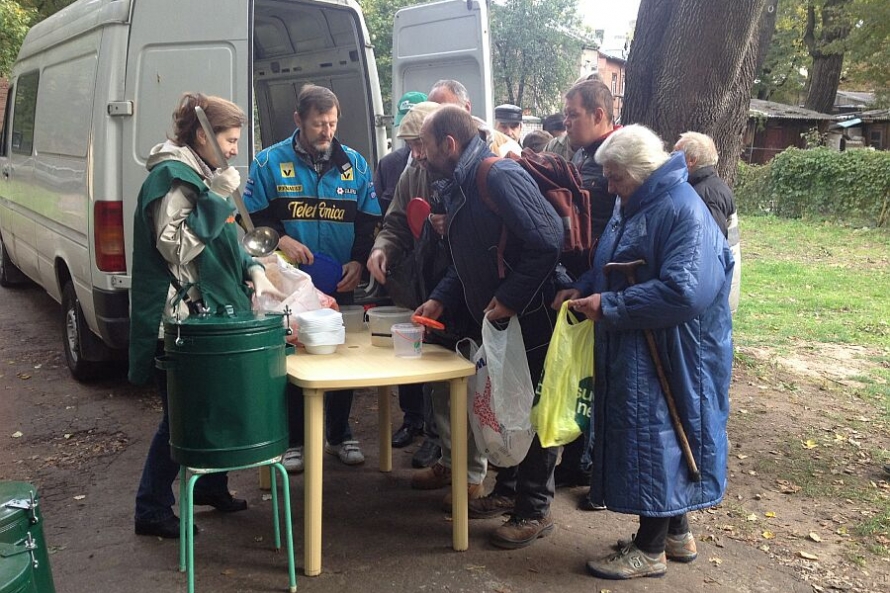57-year old Konstantins isn’t shy of working. He’s done all the odd jobs, including nightwatchman. Recently he can’t work jobs requiring him to stand for a long time as arthritis in his legs has been causing debilitating pain, earning him partial disability status, then he split from his common-law wife and lost the roof over his head.
“Got no one. All have died. I’m alone,” says Konstantins, who has nowhere to go.
Friends with whom he’s stayed temporarily have their own families to care for and he can’t bear the burden of being a burden himself, so he keeps hitting the streets to live wherever each day allows.
So he’s made the rounds of Riga’s shelters – first almost-beachfront Bolderāja, then the south-side ‘badlands’ of Moscow district neighborhood. No matter whether the weather is snowy or rainy, you’re out on the street at eight o’clock sharp, but welcome back again in the evening for a bowl of warm soup and a warm place to sleep.
“You can sit at the train station. Bus station. But there’s nothing else to do. Some use drugs, others booze. Of course, they steal, prowl the shops. Plenty of them rummage the rubbish, they’ve sunk that low,” said Konstantins, whose blood donations he claims are rejected when he provides the shelter’s notorious address.
Employment services know the address well enough, too, it turns out.
“All you have to say is ‘Moscow street 208’, and boom, there you go, they no longer want you,” says the homeless man, who managed to score a two-month stint at an experimental rehabilitation center in rural Sala district’s Ratnieki, where he’s feeling right at home, but may or may not be eligible for an extension in the dead of winter.
“I don’t know, I guess it’ll be back to the famous address,” he said, aware of his otherwise limited options, including the street.
Hundreds of people dwell in improvised huts throughout Riga. Some have no desire to seek shelter even in the depths of winter, when temperatures turn downright deadly.
But hundreds more will indeed want to come in from the cold, or be brought there by the police or the shelters’ mobile brigades.
Senior social worker Maruta Bubene describes the multi-colored characters among her clientele:
“We’ve had formerly successful businessmen that hit the skids during the crisis. Journalists, teachers, construction foremen, people with two higher degrees,” she said.
Life on the street is brutal and lonely. Many are critically ill, beset with pests and parasites. Lacking hygienic facilities, they often violently resent each other for foulness that’s not their own fault.
“It’s no secret, and one contingent well understands that all sorts of near-altercations happen out there and they’re forced to call the authorities’ attention to themselves, medics or cops. They’re like a taxi service to our human shelters,” said Bubene.
The heaviest toll is accepting that you’ve wound up alone and unneeded by anyone, say the unfortunate homeless persons surveyed, and they are still asking society to do more to help them find homes again with dignity.





























